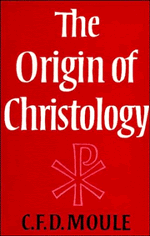Book contents
- Frontmatter
- Contents
- Acknowledgements
- Abbreviations
- Introduction
- 1 Four well-known descriptions of Jesus
- 2 The corporate Christ
- 3 Conceptions of Christ in writers other than Paul
- 4 The scope of the death of Christ
- 5 The fulfilment theme in the New Testament
- 6 Retrospect
- 7 Prospect: the ‘ultimacy’ of Christ
- Excursus: Obeisance (proskunein)
- Index of references
- Index of names
5 - The fulfilment theme in the New Testament
Published online by Cambridge University Press: 01 June 2011
- Frontmatter
- Contents
- Acknowledgements
- Abbreviations
- Introduction
- 1 Four well-known descriptions of Jesus
- 2 The corporate Christ
- 3 Conceptions of Christ in writers other than Paul
- 4 The scope of the death of Christ
- 5 The fulfilment theme in the New Testament
- 6 Retrospect
- 7 Prospect: the ‘ultimacy’ of Christ
- Excursus: Obeisance (proskunein)
- Index of references
- Index of names
Summary
In Matthew's Gospel, Ch. 2, in connexion with the beautiful story of the Wise Men from the East, and the horror story of the massacre of the innocents, comes the story of the flight of the holy family to Egypt. When, ultimately, they returned from Egypt, this (says the Evangelist) took place ‘…that what was spoken by the Lord through the prophet might be fulfilled, when he said “Out of Egypt I called my son”’.
He is quoting Hos. 11: 1, ‘I called my son out of Egypt’. But that was not a prophecy at all – not a prediction, that is. It was simply a statement about the past (a ‘postdiction’, if you like). So how could it have been fulfilled? When Hosea 11: 1 says, ‘I called my son out of Egypt’, the reference is, of course, to the exodus. It is ‘Israel’, according to Exod. 4: 22, who is God's son, his firstborn; and Hosea is making a poetic reference to the celebrated beginnings of Israel as a nation in covenant with Yahweh.
Is there any sense, then, in which the Evangelist can properly appeal to Hosea 11: 1 as a prediction fulfilled in the story of Jesus? Even if the flight into Egypt actually took place and is not legend, how could it be said to have fulfilled what was spoken by the Lord through the prophet when the prophet is himself describing something which was already in the past?
- Type
- Chapter
- Information
- The Origin of Christology , pp. 127 - 134Publisher: Cambridge University PressPrint publication year: 1977

